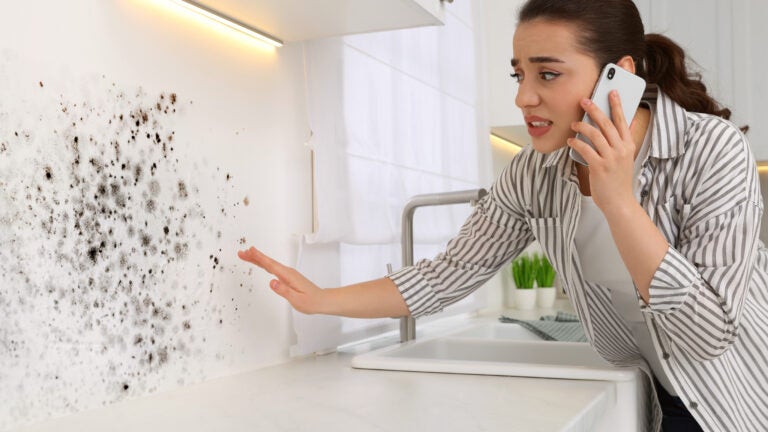Renting
Before signing a rental agreement, check out the unit in person or send someone you trust to do that, the city says
serious health problems like difficulty breathing and asthma attacks, according to city officials. If you see mold, contact your landlord right away. It could be a sign of a water leak.
Adobe Stock
After you battle the traffic, avoid getting “Storrowed,” lugged in all of the boxes, and navigated the stairs with your furniture, the last thing you need is an apartment in disrepair.
A 2020 survey conducted by OnePoll suggests that moving is the most stressful life event, even more than a break up or getting married. Finding an issue with your apartment might make you feel as if the metaphorical boulder you are pushing uphill (or maybe that big couch. Pivot!) keeps getting bigger. Sisyphus has got nothing on you.
Your rights
As tenants, you are entitled to safe and sanitary housing, according to the City of Boston’s website on renting. Your apartment should meet the following criteria, at a minimum:
- Have functioning carbon monoxide and smoke detectors
- Have heat, water, adequate exits, and toilets
- Be free of defects that could harm renters
- Be free of pest infestations
- Be free of garbage and other waste
- Provide contact information of the property owner that’s visible
If that’s not the case, what now?
Douglas Quattrochi, executive director of MassLandlords, a nonprofit trade association, said if renters face any issues with their apartment, they should notify the landlord. The landlord will then have 12 hours to acknowledge the request and may be required to take action to have it corrected as soon as possible, depending on the severity.
“If the landlord does not correct it, a renter can call their town or city board of health or department of inspectional services, he said.
Quattrochi explained that these town bodies can issue legally binding orders against the landlord or another renter to correct the situation, if they find anything wrong while inspecting the apartment. “Usually landlords are ordered to correct the problem. Renters can be ordered if, for instance, they are blocking egress with their furniture.”
But if nobody responds, Quattrochi said, the renter can hire a licensed professional to make the repair themselves and then deduct that cost from future rent payments, according to MGL Chapter 111, Section 127L.
These are the basic things that you can expect with your rental unit — but not the only ones.
“There are maybe a hundred different requirements from the state sanitary code affecting everything about an apartment, and the conditions vary depending on the size of the building,” Quattrochi said.
In addition to that, there could also be emergency situations such as floods, fire, or natural disasters, and special circumstances such as eviction, condemnation, or condo conversion. The Office of Housing and Stability can help with those issues. You can reach the office via email or at 617-635-4200.
It’s always advisable to check out the apartment, or have a friend do so, before you move, the city advises. It’s also best to document your apartment with photos and video for insurance or in case an issue arises.
Address Newsletter
Our weekly digest on buying, selling, and design, with expert advice and insider neighborhood knowledge.
